So What Are You Going to Do with That?
Finding Careers Outside Academia
THIRD EDITION
SUSAN BASALLA AND MAGGIE DEBELIUS
The University of Chicago Press
Chicago and London
Susan Basalla received her PhD from Princeton University. She is a principal at Storbeck / Pimentel & Associates, LP an executive search firm specializing in higher education. Maggie Debelius, who also received her PhD from Princeton University, is director of faculty development and an associate teaching professor in the English Department at Georgetown University.
The University of Chicago Press, Chicago 60637
The University of Chicago Press, Ltd., London
2001, 2007, 2015 by Susan Basalla and Maggie Debelius
All rights reserved.
This book was first published in 2001 by Farrar, Straus and Giroux under the title So What Are You Going to Do with That?: A Guide to Career-Changing for MAs and PhDs.
Third edition published 2015
Printed in the United States of America
24 23 22 21 20 19 18 17 16 15 1 2 3 4 5
ISBN-13: 978-0-226-20040-8 (paperback)
ISBN-13: 978-0-226-20037-8 (e-book)
DOI: 10.7208/chicago/9780226200378.001.0001
Library of Congress Cataloging-in-Publication Data
Basalla, Susan Elizabeth, 1970 author.
So what are you going to do with that? : finding careers outside academia / Susan Basalla and Maggie Debelius. Third edition.
pages ; cm
ISBN 978-0-226-20040-8 (pbk. : alk. paper) ISBN 0-226-20040-X (pbk. : alk. paper) ISBN 978-0-226-20037-8 (e-book)
1. Job hunting. 2. Graduate studentsEmployment. 3. Career changes. I. Debelius, Maggie, 1966 author. II. Title.
HF5382.7.B374 2015
650.14dc23
2014019937
 This paper meets the requirements of ANSI/NISO Z39.48-1992 (Permanence of Paper).
This paper meets the requirements of ANSI/NISO Z39.48-1992 (Permanence of Paper).
For my parents, with gratitude and love.
S. B.
For Mike, Charlie, and Jack, who never make me question what I want do with my life. When Im with them, Im doing it.
M. D.
Preface
More than a decade after writing the first edition of this book, we believe more passionately than ever that there is a wide range of satisfying and challenging careers beyond the academy for PhDs and MAs. The job market has swung wildly since we wrote the first edition of So What Are You Going to Do with That? during the height of the Internet boom, and our second edition was released in 2007 during a serious recession. But our message remains the same: were more interested in helping people figure out a long-term career than a short-term job. You should explore and pursue a path that will make you happy, regardless of market fluctuations.
While our message remains the same, we have made some important additions in this third edition in response to seismic changes in the graduate employment market. First, we have incorporated specific targeted advice for graduate students in the sciences, straight from those who have been there. This change reflects our increasing awareness of the intense funding and hiring challenges now facing the sciences as well as the humanities.
Weve also included more advice from the growing network of university graduate career counselors. In the last decade, weve observed that while once only a few select institutions employed career counselors dedicated to helping graduate students, such positions are now increasingly common. You may know them best as the kind souls who help you transform your CV into a rsum, but they are also highly knowledgeable about the needs and preferences of individual employers as well as national hiring trends. Over the years, university career counselors have repeatedly helped us deepen our own understanding of the challenges graduate students face by sharing their advice and experiences from the front lines. We are deeply grateful for their help. And whether youre just beginning a graduate program or already finished with your dissertation, we strongly recommend making an appointment with one of these counselors.
Over the past decade weve also noticed university leaders becoming more aware of the need to address the shifting job market for graduate alumni. Ad hoc initiatives have popped up around the country and were pleased to see these encouraging signs. However, there is much more work to be done. The number of tenure-track jobs has continued to erode at such a rate that graduate students who pursue alternatives, either inside or outside the academy, make up a new majority. We believe more strongly now than we did a decade ago that universities have an ethical obligation to help graduate students prepare for and think creatively about their options. Of course, graduate alumni are ultimately responsible for their own careers, but universities can and should do more to support their efforts.
Since publishing the first two editions of this book, we have heard from countless readers who told us that our book helped them see their talents and abilities in a new light. Some of these readers shared their stories with us and others offered suggestions for improving the next edition. Wed like to thank these readers and all the other MAs and PhDs who appear in the following pages for their generosity.
Introduction
So now what?
If you are now or have ever been a graduate student, youve heard the universal question about earning an MA or a PhD: So what are you going do with that? Teach? One of the occupational hazards of academic life is enduring this kind of questioning from friends and family. Your least favorite uncle has probably called you overeducated and unemployable. And maybe, somewhere in the back of your mind, you also have occasional moments of doubt about your future: What am I going to do with my graduate degree?
Maybe youre halfway to graduation and suddenly wondering if teaching is the right career for you. Maybe youve endured two postdocs and cant bear the thought of signing up for a third one. Maybe your hearts not in it anymore; maybe youd like to earn more money; maybe youd like to live somewhere where there are few college-level teaching jobs. Or maybe, like increasing numbers of graduates, youd love to teach but cant find a tenure-track job.
Maybe youre an undergraduate feeling the path of least resistance is to move straight on into graduate school in the field of your major. With the market for college and university teaching jobs shrinking at an alarming rate, you need to consider all your options before, during, and after graduate school. Read through the stories contained here as a gut check before committing yourself to many years of graduate school. As we hear over and over again from career counselors at top universities, too many undergraduates head straight to grad school without a clear understanding of how few tenure-track jobs lie on the other side or of the debt theyll accrue along the way. We want you to have all the facts before you make the leap.
Or maybe youre a faculty membertenured or otherwisewhos ready for a new way of life. Are you an academic nomad, traveling around the country from one adjunct position to another? Did your departmental review go badly and you just dont have the heart to seek another academic position? Or are you a tenured professor who cant face teaching the same courses and clashing with the same colleagues for one more semester? Did your spouse just land the job of her dreams at an institution not hiring in your field? This book is for faculty as well as grad students. (In fact, we were surprised in our research to see how common it was for faculty to jump ship from academia.) Youll hear advice and anecdotes from many former professors in the chapters to come.
Next page
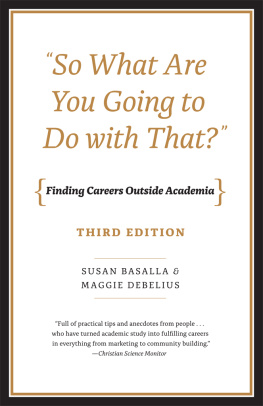
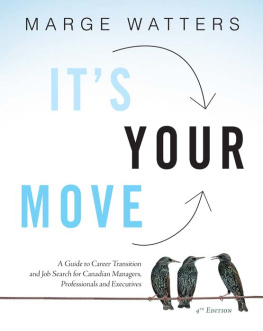
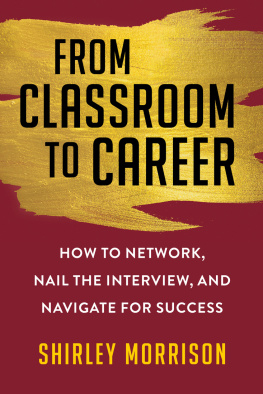


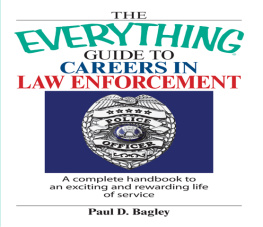
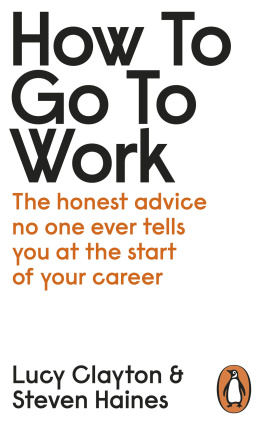
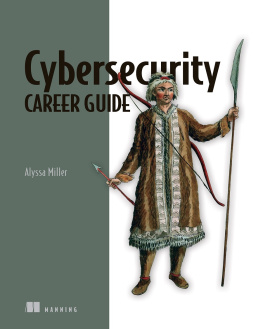
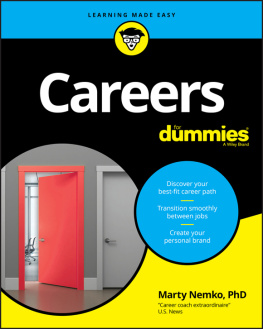
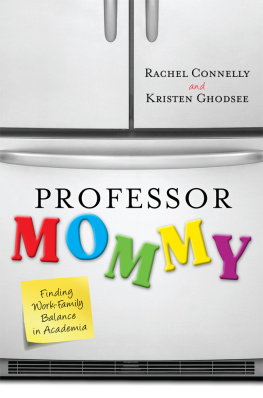
 This paper meets the requirements of ANSI/NISO Z39.48-1992 (Permanence of Paper).
This paper meets the requirements of ANSI/NISO Z39.48-1992 (Permanence of Paper).